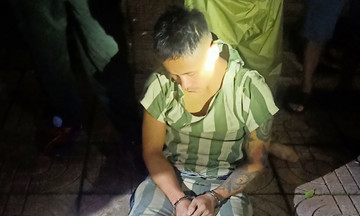Being dumped by her boyfriend just 3 days after giving birth to their son wasn't the worst of it for 31-year-old Chelsea Miller. Worse was that her ex-boyfriend, 26-year-old truck driver Sheldon Brown, began denying paternity. He demanded a DNA test.
Chelsea wasn't worried about the request, certain of the child's parentage. But the test results delivered a devastating blow: The DNA samples were negative, indicating no biological link between Sheldon and the baby.
Legally, DNA tests are irrefutable evidence in child support rulings. Chelsea faced the prospect of raising her son alone, but she refused to give up.
She persuaded Brown's mother to provide a DNA sample to a different laboratory. The results confirmed the boy was indeed her grandson, proving the biological connection between Sheldon and the child.
This revelation thwarted Sheldon's plan. He confessed to falsifying the paternity test to evade child support. Sheldon admitted enlisting his aunt, who knew someone working at the DNA lab, to help him fake the results.
 |
Sheldon Brown didn't want to support his child. *The Sun* |
The lab technician later confessed to swapping Sheldon's DNA sample with his own to skew the results, but claimed he received no payment for his assistance.
Both were convicted of conspiracy to defraud at Guildford Crown Court on 15/7. Sheldon received a 50-week prison sentence, and his accomplice received 33 weeks. Along with the prison sentence, Brown will also be required to pay child support, the exact amount of which is yet to be determined.
Following the trial, Chelsea expressed her disappointment at the unprofessional conduct of the DNA lab technician who assisted her former boyfriend. "The level of unprofessionalism and breach of trust in this case is unacceptable. Patients deserve to feel safe and respected, especially in sensitive situations like this," she said.
In the UK, child support can be agreed upon by parents or determined by the Child Maintenance Service (CMS). Based on parental income and the number of children, the CMS calculates the support amount and charges fees. The paying parent incurs a 20% service charge, while the receiving parent pays 4%.
Parents earning less than £7 (245,000 VND) per week are exempt from child support payments. Higher earners pay more, with a minimum payment of £7 per child per week.
Child support obligations typically last until a child turns 16. However, if the child continues in higher education, payments may extend for another 4 years.
Evading child support is difficult. The CMS can enforce payments through deductions from earnings or bank accounts, asset seizures, driving license revocation, passport cancellation, or even imprisonment. Even if a parent is imprisoned or loses their driving license, they remain liable for outstanding child support payments. The CMS operates on the principle of pursuing all outstanding payments.
Hai Thu (*The Sun, CMS, GovUK*)












